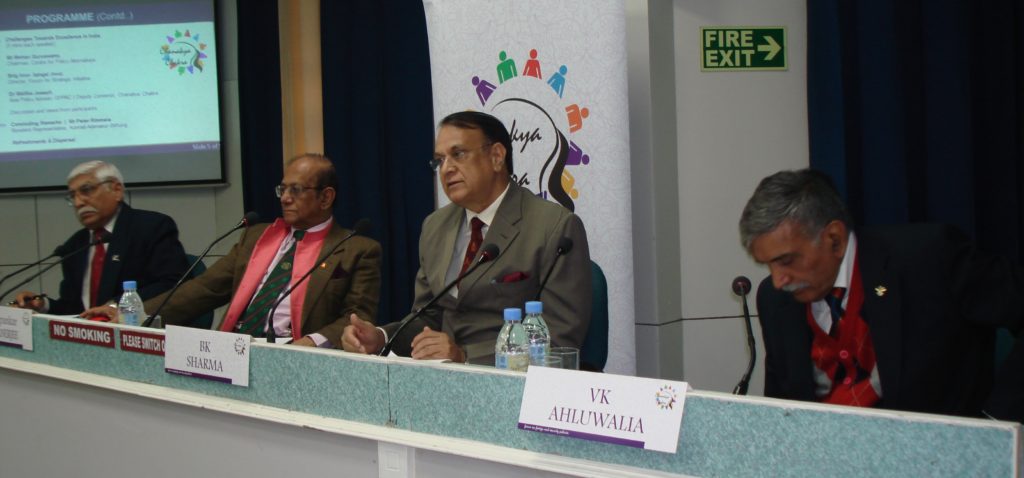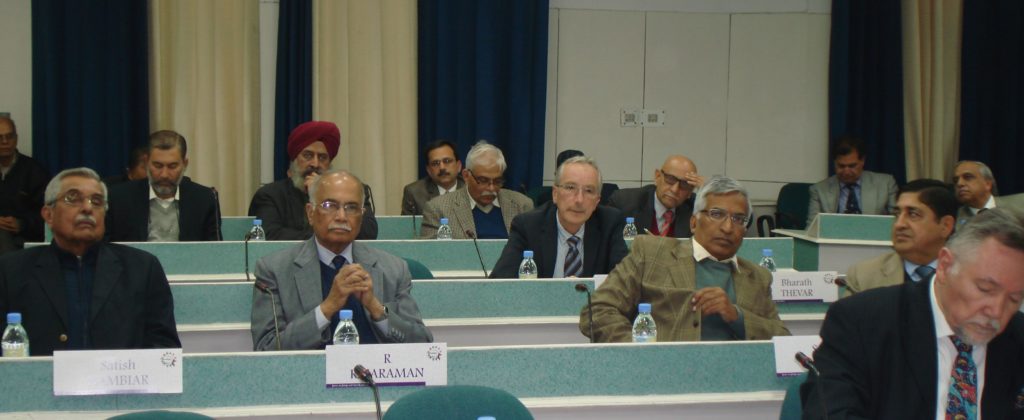The annual Think Tank and Civil Society Programme (TTCSP) conference on, ‘Why Think Tanks Matter: Roles and Challenges to Policy Making in India’ was organised at the USI on 30 January 2020. The meeting was convened by Chanakya Chakra and supported by Konrad-Adenauer-Stiftung. Seven leading think tanks of India, United Service Institution of India (USI), Forum for Strategic Initiative (FSI), Centre for Joint Warfare Studies (CENJOWS), Centre for Land Warfare Studies (CLAWS), National Maritime Foundation (NMF), Centre for Air Power Studies (CAPS) and Kalinga International Foundation participated in the event. .The opening address was made by Maj Gen BK Sharma, AVSM, SM** (Retd), Director, USI and Maj Gen Dipankar Banerjee (Retd) made the introductory remarks.
The conference was broadly categorized into two sub themes ‘Why Think Tanks Matter in an Emerging India’ and ‘Challenges towards Excellence in India’. Lt Gen V K Ahluwalia PVSM, AVSM**, YSM, VSM (Retd), Director, CLAWS and Lt Gen Vinod Bhatia, PVSM, AVSM, SM, (Retd), Director, CENJOWS presented their views on the “Why Think Tanks Matter in an Emerging India” and Brig Arun Sahgal (Retd), Director, Forum for Strategic Initiative and Dr Mallika Joseph, Policy Adviser, GPPAC discussed on the ‘Challenges towards Excellence in India’. The conference concluded with remarks from Mr Peter Rimmele, Resident Representative, KAS, in India.

Major discussions and takeaways from the conference are:
Why Think Tanks Matter in an Emerging India:
South Asia with less than 4% of the total landmass and with more than 25% of the world population faces a multitude of issues that call for debate and discussion and policy formulations. Policy choices range from fundamental societal questions like poverty, hunger, health, education to transnational issues like terrorism, deterioration of multilateralism, trade and global economy, etc. Think Tanks are an essential contributor to knowledge and our awareness to address these issues. With India’s rapid rise and growing influence in global affairs, this has acquired an even greater salience today. All participants agreed that think tanks matter even more in India today. Questions that will need to be addressed on priority are; national security, development, health, education, environment etc. and recommend relevant policies allowing India to play a more dynamic role in global affairs.

Challenges Towards Excellence in India:
India is next only to USA in the total number of think tanks in a country, yet qualitatively there is still a mammoth task left. The Think Tanks navigate through multifaceted challenges, which are broadly categorized under a. Credibility, b. Accessibility and c. Availability
Credibility:
In the age of disruptive technologies and social-media-manipulation, the credibility of any information or knowledge is challengeable. Think Tanks’ affiliations and non-partisanship is essential to its credibility. They also should adapt to modern technological developments like data analysis and utilize methodological and other research tools to provide groundbreaking insights.
Accessibility:
The mobilization of requisite funding for projects is the single largest challenge for Indian think tanks. The private sector in India is beginning to emerge as a major funder for innovative research and policies will need to encourage this. Acknowledging that this is a worldwide concern, it is appreciated that the Government of India is seriously addressing this question.
Availability:
These long-standing problems of Accessibility and Credibility over the years have restricted the development of the Human Capital to cater to think tanks. Falling back on former practitioners in Government and limited academic researchers, they also lack an inter-disciplinary approach. Hence Indian think tanks set their agenda to narrow areas, neglecting recent global trends.
Recommendations and Suggestions:
In the Information age where Information is both an abundantly available commodity yet highly sought out, the think tank mandate today is to build its capacity and adapt modern technologies and tools. Innovate management techniques; rigorous statistical method and data analysis contribute towards enhancing the quality research conducted. The ideas and insights developed in think tanks are would go in vain if they are not rightly marketed to the stakeholders, which can be accomplished by an efficient marketing strategy. Only sustained collaboration with technical Institutions and universities can help develop the intellectual capital required in the long term. Inter-organizational cooperation can help address the issues of credibility, accessibility and availability in the immediate future. This will call for greater global networking.


